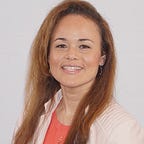Title: The Best Practices For Effective Communication: Why Is Self-Assessment Important?
Self-assessment should be a habit practiced continuously to drive and support one’s effort to improve, grow and develop. This article focuses on the importance of self-assessment along with its best practices.
Honesty, reliability, trust, and empathy are the fundamental principles that drive the best practices for effective communication in any setting. The purpose of self-assessment is to measure the alignment of employees’ behavior, feelings, and actions combined with these fundamental principles.
Communication begins with the communicator (who). The communicator’s ability to practice communication self assessment is the foundation of their ethos, logos & pathos. It helps them recognize the “what,” “how,” “why,” and “whom.” Together, these determine the success of the communicator as well as the communication’s effectiveness.
What is Self-Assessment?
Self-assessment is an inside-out process that requires looking inside to understand and accept an individual’s strengths & weaknesses, principles & values, perceptions & mindset, and reactions to external stimuli before moving out to interact with others.
Successful self-assessment can lead to a deep and thorough awareness of oneself and the effect of one’s behavior & feelings on their actions and others. Self-assessment has been identified as the first component of emotional intelligence. Therefore, this is an essential tool for successful human relationships.
When applied to communication, self-assessment enables one to plan a strategy, understand the purpose of the vision, tailor the message to the audience and articulate clear and well-defined reasoning to ensure the desired outcome.
What about the Best Practices for Self-Assessment?
- Targeted: Self-assessment is appropriate to any given situation. Therefore, it is crucial to engage in targeted self-assessment; i.e., the questions we ask ourselves during our moments of reflection should be fit-for-purpose.
- Proactive: Self-assessment should occur before interaction and after it is completed. The former ensures proactive planning, and the latter entails proactive learning. It is cyclical and should be a standard practice in any organization.
However, there are two habits that prevent individuals from engaging in self-assessment.
Denying Accountability and Responsibility:
This is a pretty common yet detrimental habit hampering the overall success of an organization. The condition is led by ego & fear; fear of critique, failure, incompetency, or even consequences. The reverse of this habit takes courage and self-confidence. Therefore, it is vital to be aware of your strengths and realize and improve your weaknesses simultaneously.
Playing the Blame Game:
This habit is usually the result of the previous one. People often fall for it because it is the easiest course of action and because owning up requires stepping outside of our comfort zone. Honesty towards ourselves and others reflects in our communication, building relationships based on mutual respect and trust.
The first step towards cultivating effective communication skills is to have confidence in our strengths and to have the ability to recognize, acknowledge and take ownership of addressing our weaknesses. This takes time to reflect and courage to engage in critical yet honest self-assessment.
Dr. Karen Walker
drcombatpink@kw-productions.com
Personnel Research Psychologist at Department of Justice
Founder of KW Productions
